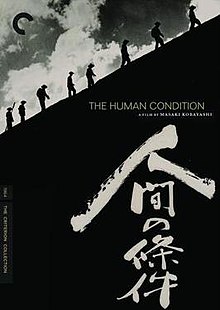
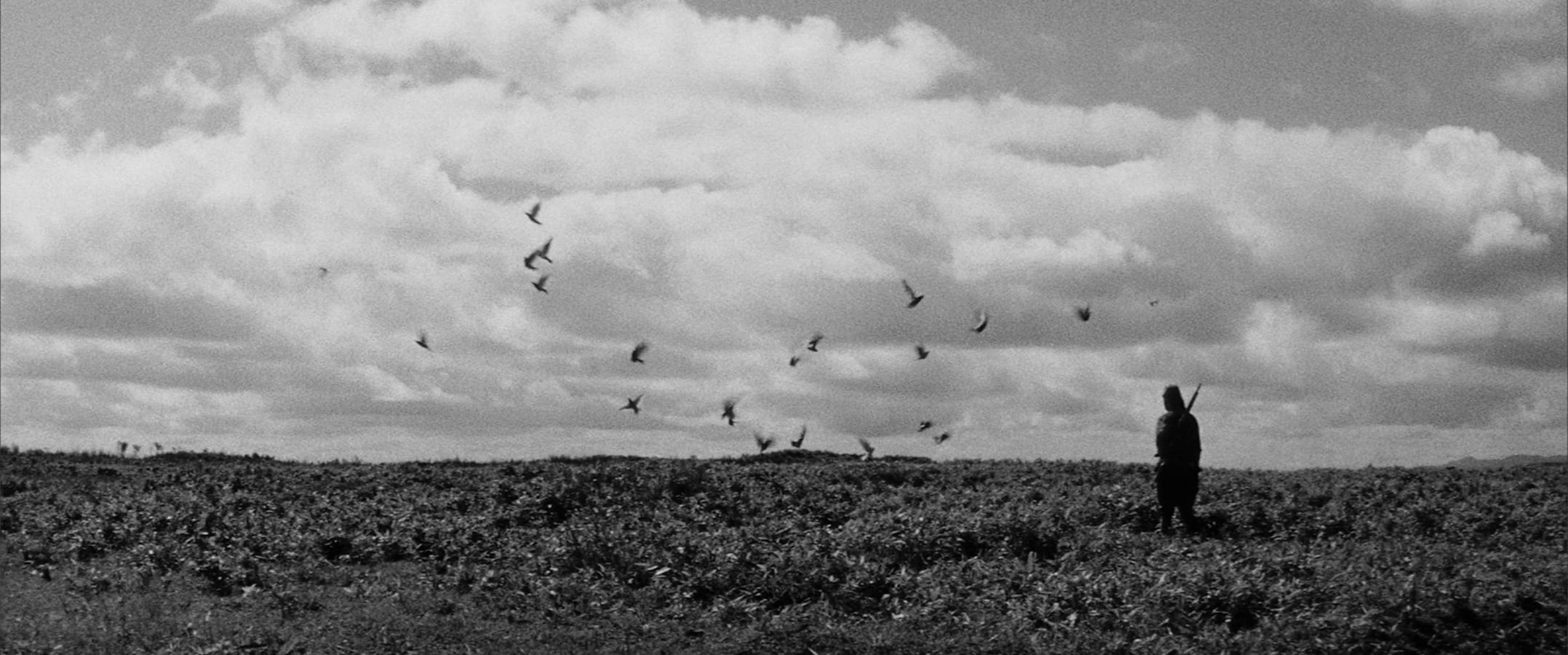
Synopsis, from IMDB:
A Japanese pacifist, unable to face the dire consequences of conscientious objection, is transformed by his attempts to compromise with the demands of war-time Japan.
The most immediately striking thing to me about this (Japanese) trilogy is how bluntly it exposes the excesses and abuses of the Imperial Japanese system during WWII, so soon after the end of the war.
The structure of the trilogy reminded me of the TV show, The Wire. Each film focuses on a different aspect of the war, as each season of The Wire did for with the war-on-drugs.
We are given a sympathetic protagonist to follow, who undergoes a significant transformation as a result of his difficult experiences.
Part I: No Greater Love
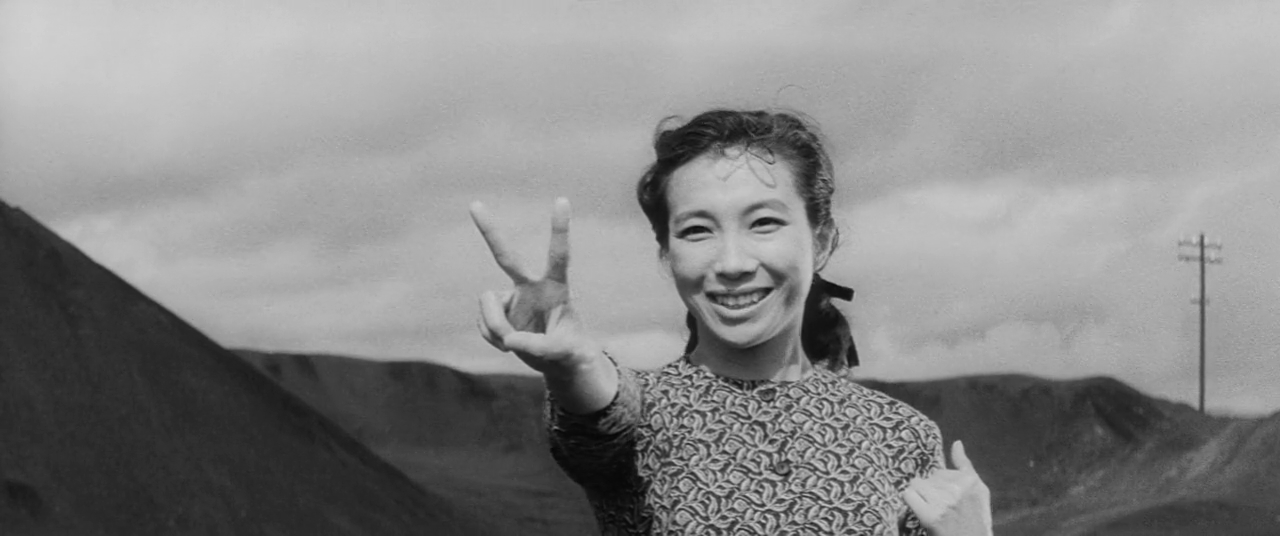
The first film takes place primarily within a camp for Chinese POWs and does not shy away from the abuses that took place.
Seeing things from the prospective of a supervisor who would like improve conditions, the viewer feels the frustration of trying to work within a corrupt and unfair system.
Part II: Road to Eternity
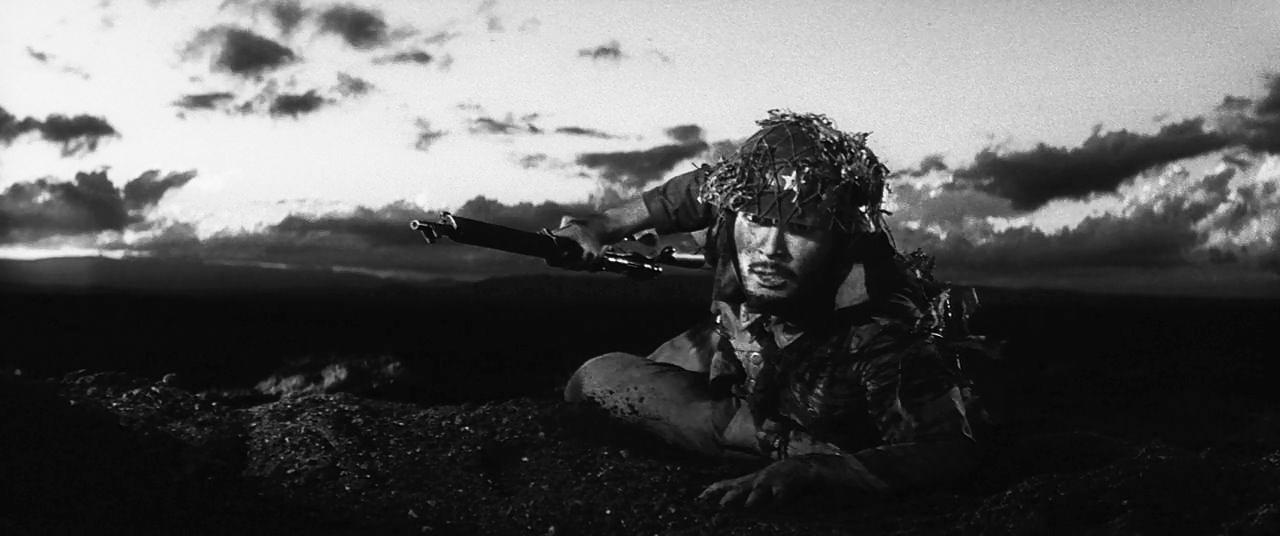
This is an epic, even as a stand-alone movie. It does a great job keeping things grounded in the central character’s journey, even within such a grand story.
Taking place on the front-lines, we see the position that conscripted soldiers are put in and the actions that they are often forced to take, regardless of their personal feelings on the war.
The climactic battle sequence is amazing for being so large-scale and chaotic, but still easy to follow. The practical explosion effects, with dirt burying the characters and even the camera, are especially impressive (also dangerous-looking!).
Part III: A Soldier’s Prayer
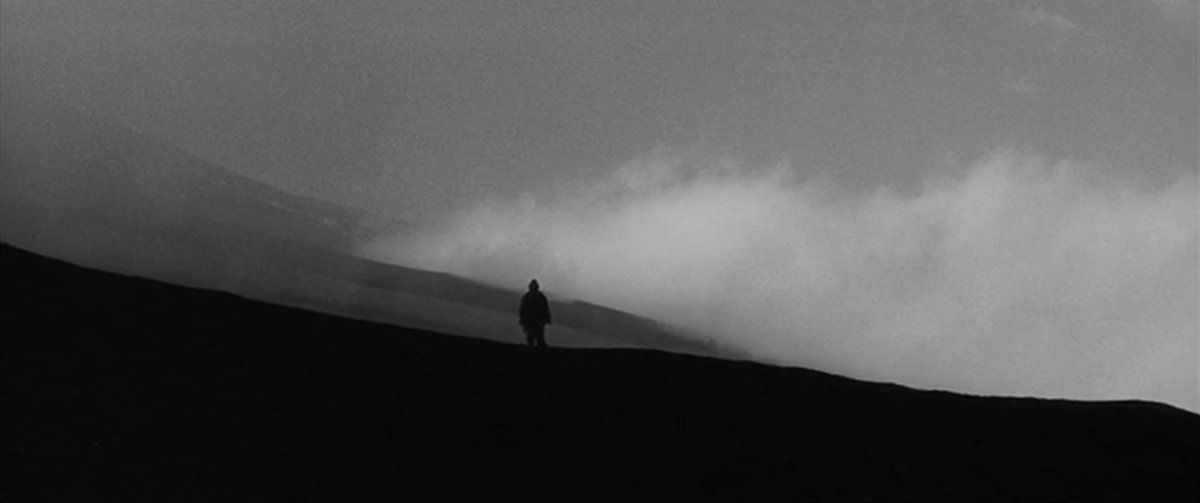
In this film, we start to see some of the soul-searching that occurred in the Japanese people, in the aftermath of WWII, that would have led to this series being made.
Following a group of defeated soldiers, we see the dilemmas that occur when there is no consensus for surrender. We also see, for the first time, the impact on refugee civilians.
The conclusion of the central character’s arc cements it as among the best I have ever seen in movies.